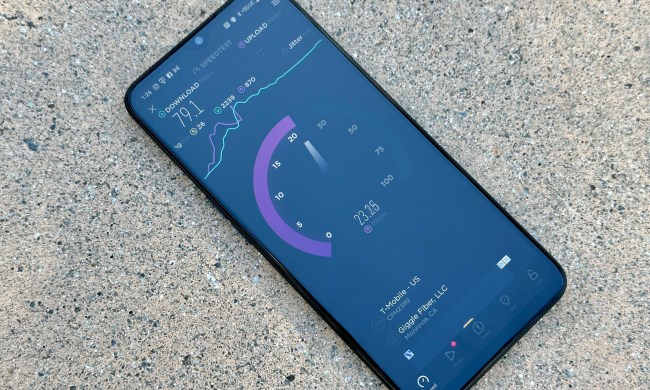Xfinity Mobile says 5G is coming to its cell service plans, at no extra cost. Starting Monday, people who subscribe to the service will have access to the faster network, regardless of what plan they’re on — with some caveats.
Xfinity Mobile, which leverages Verizon’s network for its service, has two types of plans, both only available to Comcast customers. You can either pay by the gig for data (1 GB for $15, 3 GB for $30, or 10 GB for $60 per month) or get unlimited data for $45 per month per line. All plans now come with 5G access.
While the potential of 5G is enormous, it’s not ubiquitous. Xfinity said its 5G service is currently available in 34 U.S. cities, including Atlanta, Boston, Chicago, Denver, Detroit, Houston, Memphis, Miami, Minneapolis, Spokane, St. Paul, and Washington, D.C. Not all phones will work with 5G, either — you’ll need a 5G-capable phone to take advantage of it. Earlier this year, Xfinity Mobile started selling the Samsung Galaxy S20+ 5G and Galaxy S20 Ultra 5G, both of which will work with the network’s new service. The company said it will add more devices in the future.
Verizon currently plans to charge its own subscribers $10 a month for access to the same 5G network Xfinity Mobile customers will now get for free. It has been waiving this fee as it expands the network, and as people wait to see the blazing-fast speeds that they’ve heard so much about.
Xfinity hasn’t released the full list of cities where you’ll be able to access Xfinity Mobile’s 5G network, but there are currently 34 cities in Verizon’s 5G plan. Those cities include:
- Atlanta, Georg.
- Boise, Idaho
- Boston, Mass.
- Charlotte, NC
- Chicago, Ill.
- Cincinnati, Ohio
- Cleveland, Ohio
- Columbus, Ohio
- Dallas, Texas
- Denver, Colo.
- Des Moines, Iowa
- Detroit, Mich.
- Grand Rapids, Mich.
- Greensboro, N.C.
- Hampton Roads, Va.
- Hoboken, N.J.
- Houston, Texas
- Indianapolis, Ind.
- Kansas City, Mo.
- Little Rock, Ark.
- Los Angeles, Calif.
- Memphis, Tenn.
- Miami, Fla.
- Minneapolis, Minn.
- New York, N.Y.
- Omaha, Neb.
- Panama City, Fla.
- Phoenix, Ariz.
- Providence, R.I.
- Salt Lake City, Utah
- St. Paul, Minn.
- Sioux Falls, S.D.
- Spokane, Wash.
- Washington, D.C.
This story has been updated to reflect that Xfinity Mobile is currently available in 34 cities.


